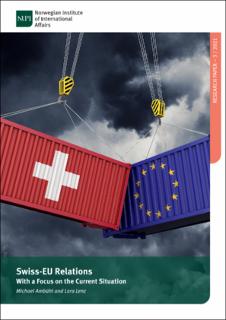| dc.description.abstract | In 1992, Swiss voters rejected an accession to the European Economic Area (EEA). Among different reasons for this were institutional and sovereignty questions, such as the dynamic adoption of new EU legislation, and the Swiss Government announcement of the EEA being a training camp for a future EU membership. Instead of the multilateral EEA approach, Switzerland chose a bilateral approach with Bilateral Agreements I and II, which were signed in 1999 and 2004, respectively. The two packages regulate aspects of the economic, political, and cultural landscapes and benefit both parties with legal certainty and market access in selected policy sectors. About ten years ago, the EU expressed its desire for an Institutional Framework Agreement (IFA) with Switzerland to protect the homogeneity of the internal market, to remove legal barriers, and to introduce a more efficient dispute settlement procedure. The draft of the negotiation result (not initialed) presented in 2018 raised three concerns about which the Swiss Government sought clarification from the EU: wage protection, state aid, and the Citizens Rights Directive. These three issues continue to be central concerns for many Swiss voters because these rules could potentially create social or economic problems. Without acceptable clarification on these points from the EU, there is a considerable risk that the Swiss people could reject the IFA in a future referendum, which would put Switzerland and (to a lesser extent, of course) the EU in a difficult situation. To avoid such a consequence, Switzerland must exercise caution. If a satisfactory solution cannot be reached, Switzerland must consider alternatives to a premature submission of the IFA to avoid legal uncertainty during an interim period. Regardless of the upcoming bilateral developments, Switzerland, at the heart of Europe, traditionally has a positive relationship with the EU. These friendly relations are all the more important when considering today’s challenges, in which Switzerland can show solidarity with Brussels and support the larger-scale European goals of promoting peace, democracy, and human rights in the world. | |

